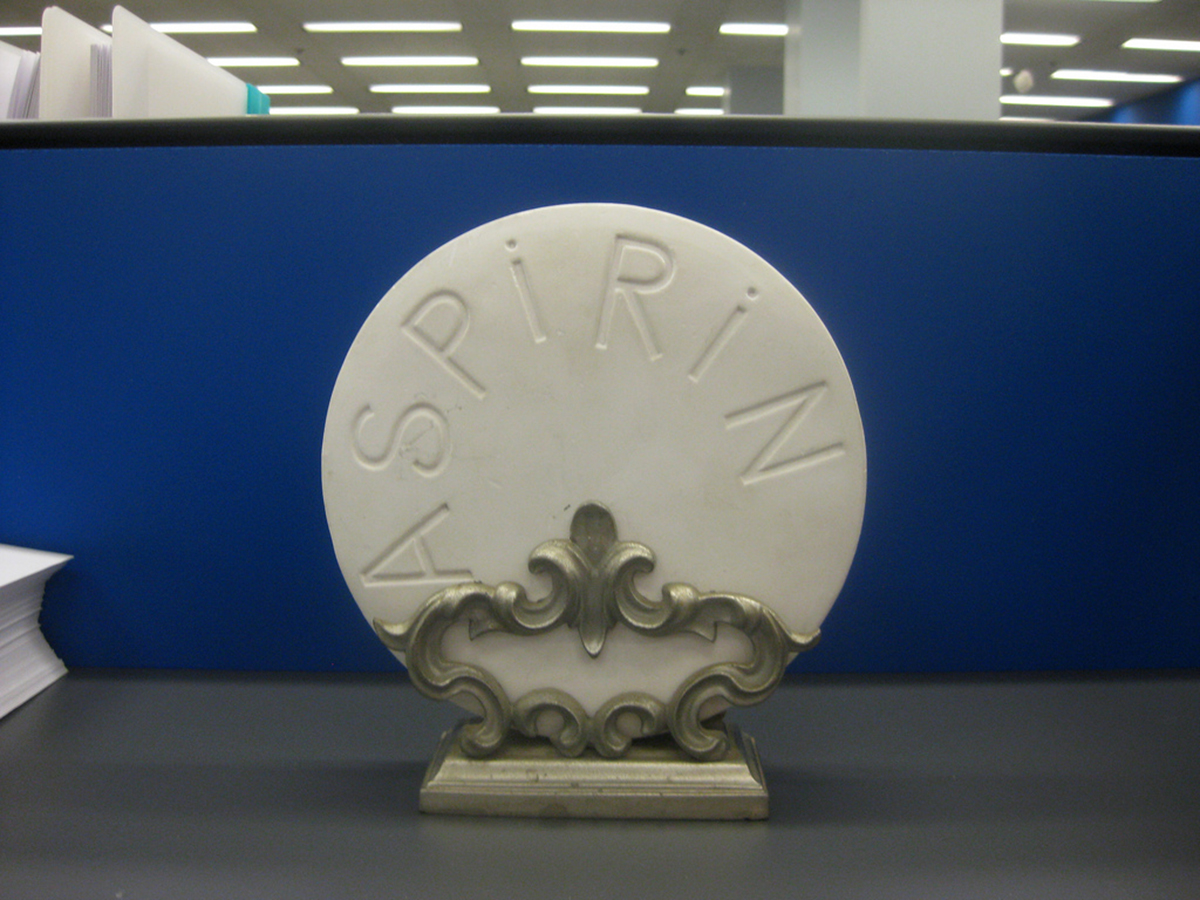Table of Contents
Paracetamol/Acetaminophen for Back Pain and Arthritis
Millions rely on Paracetamol for their minor niggles every day. But is it the best thing? Last year, the British Medical Journal published a review of thirteen trials. It found that Paracetamol/Acetaminophen was:
- Ineffective for back pain
- "Not clinically important" when it came to osteoarthritis of the hip and knee.
More recently, in March of this year, the Lancet said the drug has "no role" in treating osteoarthritis.
Non-steroidal anti-inflammatories are far more effective, though patients with stomach problems can't take them.
Try strengthening your muscles. It improves pain with both problems.

High Fibre Diet for IBS
Many patients with Irritable Bowel Syndrome have been told they ought to eat a high fibre diet. However this diet has never been supported by any evidence and, in fact, may make your symptoms worse.
Gastroenterologist, Professor Chris Hawkey, chairman of CORE (a UK charity that funds research into diseases of the gut, liver and pancreas), says:
"There was never any evidence that it would work - it just became a widespread belief."
Different IBS sufferers will benefits from different diets. But many may find they benefit by reducing dietary fibre, and even from eating those big food no-nos: white bread, and white pasta. Other patients may benefit from reducing fatty foods and fructose. Work with your doctor and find out what works for you.
Aspirin for a Dodgy Heart
One million people in the UK have atrial fibrillation, a fast and irregular heartbeat. It raises the risk of blood clots and deadly stroke. Many patients are still given Aspirin for this condition, even though Aspirin doesn't thin the blood enough to prevent a deadly clot with this condition.
Antibiotics for Earache
Ear infections are the most common cause of children being prescribed antibiotics. However, only one in three is caused by bacteria. If your child's (or your) ear infection is caused by a virus, antibiotics won't work. If it's a virus, it will clear up by itself in 48 hours.
The best option is to get a deferred prescription for antibiotics, dated for two days' time. That way, if the infection doesn't clear up on its own, the patient can safely assume the infection is probably bacterial and collect the prescription.
This prevents taking an antibiotic unnecessarily.
READ The Healing Power Of Placebo
Arthroscopy for Achy Knees
Arthroscopy is an increasingly common operation where surgeons make an incision in the knee, insert a tiny camera and trim away torn cartilage. It's done to tackle knee pain.
The problem is that it's expensive and may not work. Philip Conaghan, Professor of Muscloskeletal Medicine at Leeds University, says that the pain is usually coming from underlying bone and tissue underlying the joints:
"Arthroscopy isn't going to affect either of those things," he says. "But the problem is that there are many people with un-met pain needs. Telling them you can look inside their knee and clean it out a bit can sound like an attractive option."
However Professor Conaghan adds that people with a locked knee caused by torn cartilage do very well with Arthroscopy.
Should I stick with my placebo?
Dr. Clare Gerada of the Royal College of GPs suggests that placebos can be used if they don't cause unpleasant side effects and aren't expensive. Even if your medicine is a placebo, studies show that the placebo effect is very strong, working for migraine, IBS, Parkinson's, and other conditions.
But do be careful. Not all placebos are harmless: taking too many vitamins, or paracetamol/acetaminophen can cause a lot of harm. You should also be wary of taking unnecessary antibiotics, as you might be immune to their effects when you have a serious bacteria needing treatment.
Always seek medical advice, and understand what your treatment hopes to accomplish.
- www.livescience.com/51421-should-placebos-treat-patients-ethics.html
- www.bbc.co.uk/news/health-21834440
- www.webmd.com/pain-management/what-is-the-placebo-effect
- patient.info/health/irritable-bowel-syndrome-diet-sheet
- www.dailymail.co.uk/health/article-3581821/Why-don-t-need-bother-flossing-Cough-syrup-waste-time-fish-oil-doesn-t-help-hearts-Experts-reveal-popular-treatments-don-t-make-difference.html
- www.dailymail.co.uk/health/article-3699372/Placebos-work-Bogus-pills-trigger-similar-healing-process-real-drugs-helped-people-migraines-IBS-Parkinson-s.html
- Photo courtesy of oliverdodd: www.flickr.com/photos/oliverdodd/3831365675/
- Photo courtesy of meesterdickey: www.flickr.com/photos/meesterdickey/3808816876/
- Photo courtesy of oliverdodd: www.flickr.com/photos/oliverdodd/3831365675/


Your thoughts on this